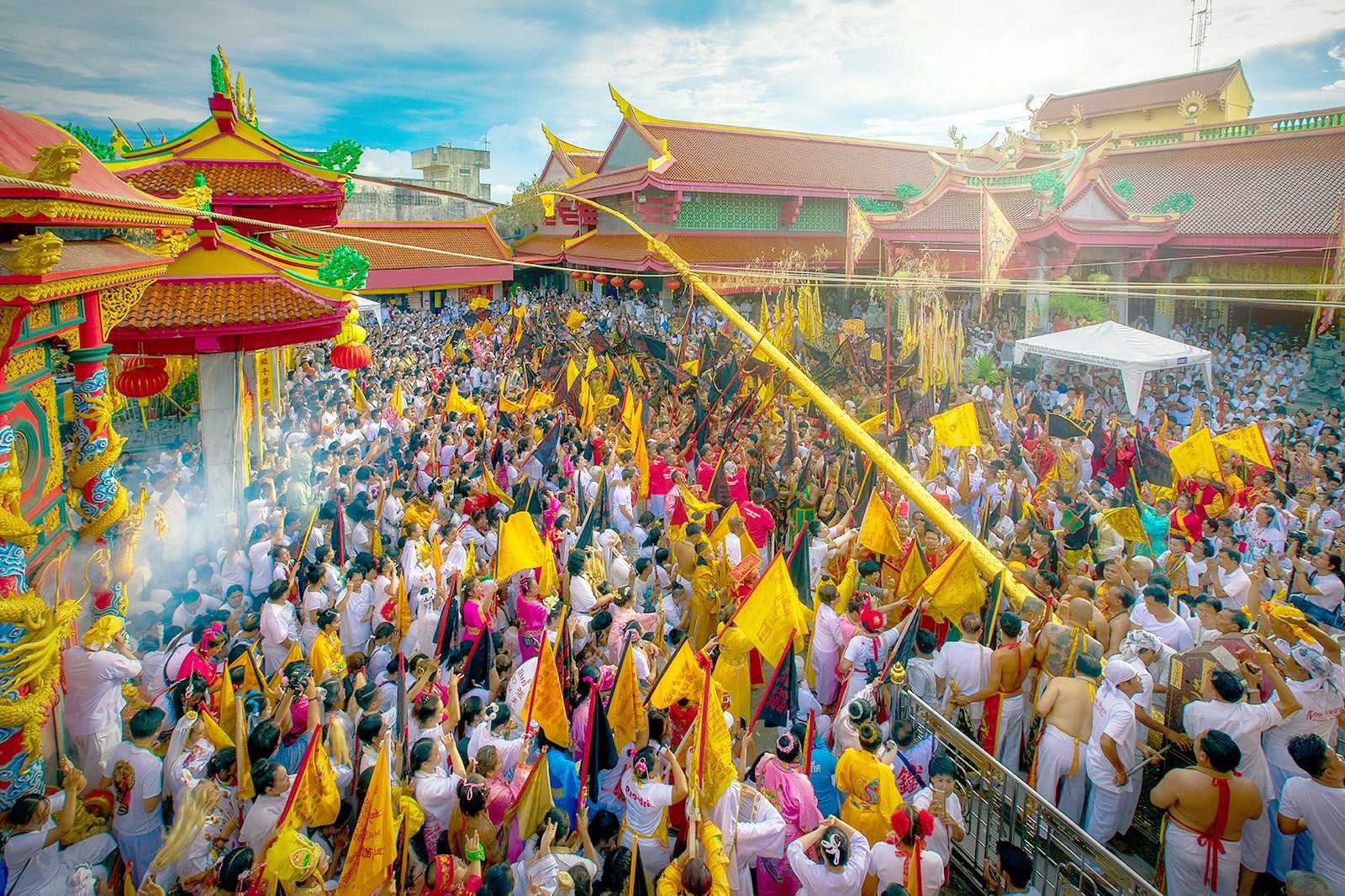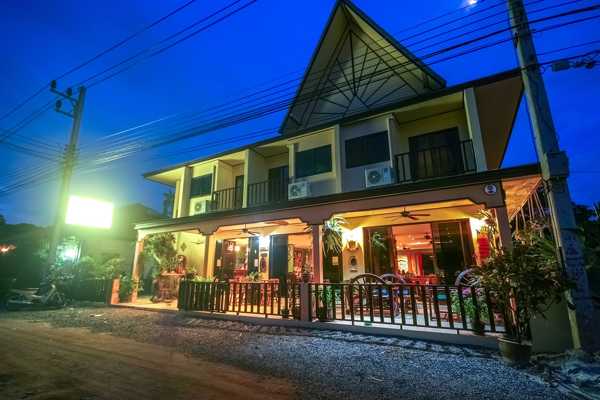The Phuket Vegetarian Festival is a colourful annual event held on the 9th lunar month of the Chinese calendar, usually in September or October. The festival celebrates the Chinese community's belief that abstinence from meat and various stimulants will help them obtain good health and peace of mind.
The festival is famous for its 'extreme' celebrations. These include acts that invoke the gods, from firewalking to body piercing. Acts of self-mortification are undertaken by participants who act as mediums of the gods. These have become more spectacular and daring as each year goes by.
Phuket Vegetarian Festival - one of the highlights of Phuket Festivals & Events (Read all about Phuket Province here)
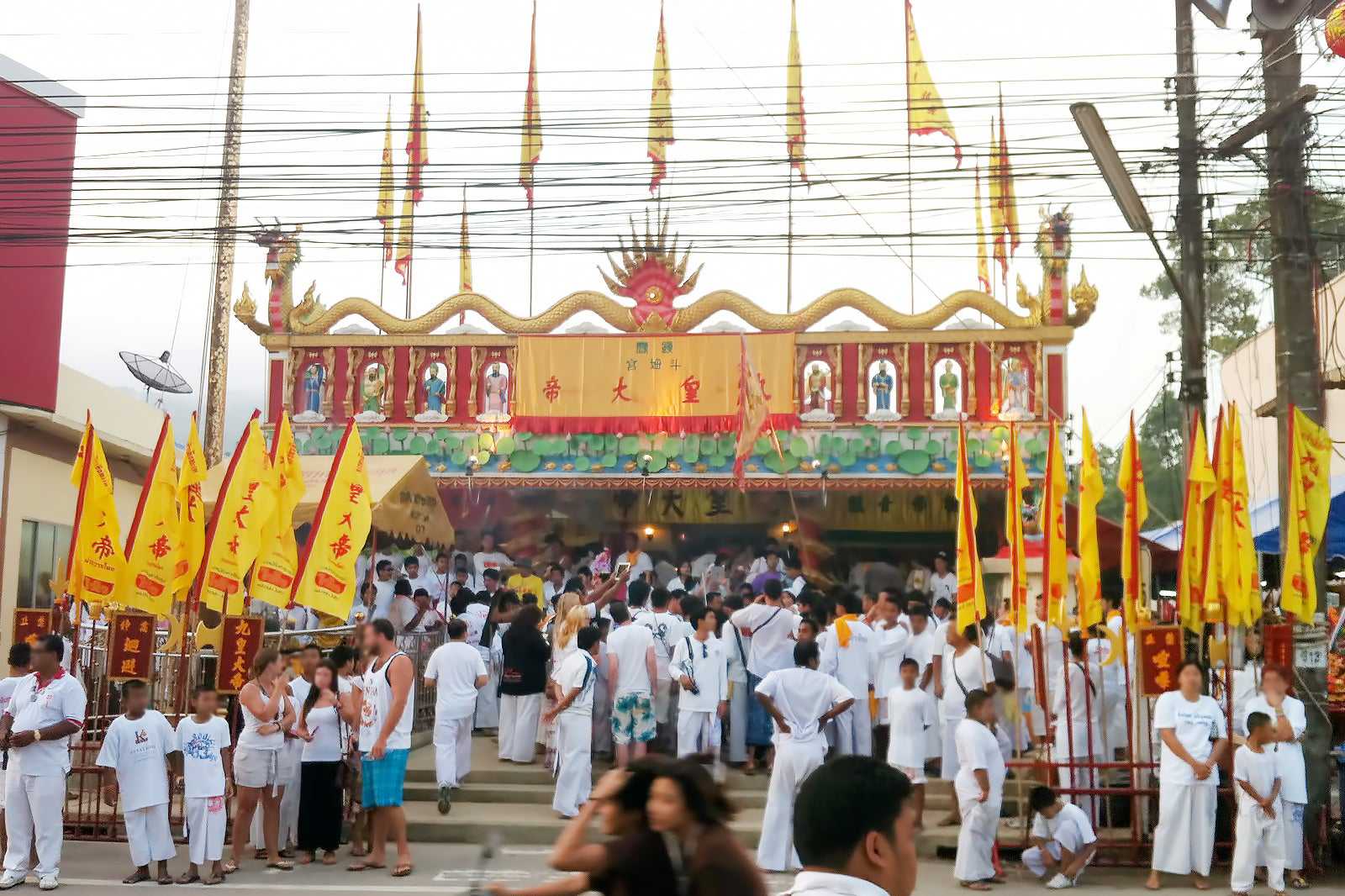
photo by Kirill Kay (CC BY-SA 3.0) modified
History of the Phuket Vegetarian Festival
While the origins of the Phuket Vegetarian Festival are unclear, it is commonly thought that it was brought to the island by a wandering Chinese opera group that fell ill from a malaria epidemic. One of the performers was sent to China to invite the Nine Emperor Gods (known as the Kiu Ong Iah) to Phuket.
The Chinese followed the tradition of refraining from eating meat, drinking alcoholic drinks, engaging in sex, quarrelling, telling lies or killing. This was to ensure the purification of the mind and body. The opera group made a complete recovery and the epidemic ceased. Since then, the people of Phuket have continued to celebrate the festival.
The festival was meant to honour the gods and express the people's happiness at surviving what was, in the 19th century, a fatal illness. Subsequently, the festival has grown and developed into a spectacular yearly event in Phuket. It draws thousands of visitors each year, many of whom come from China and Asian destinations.
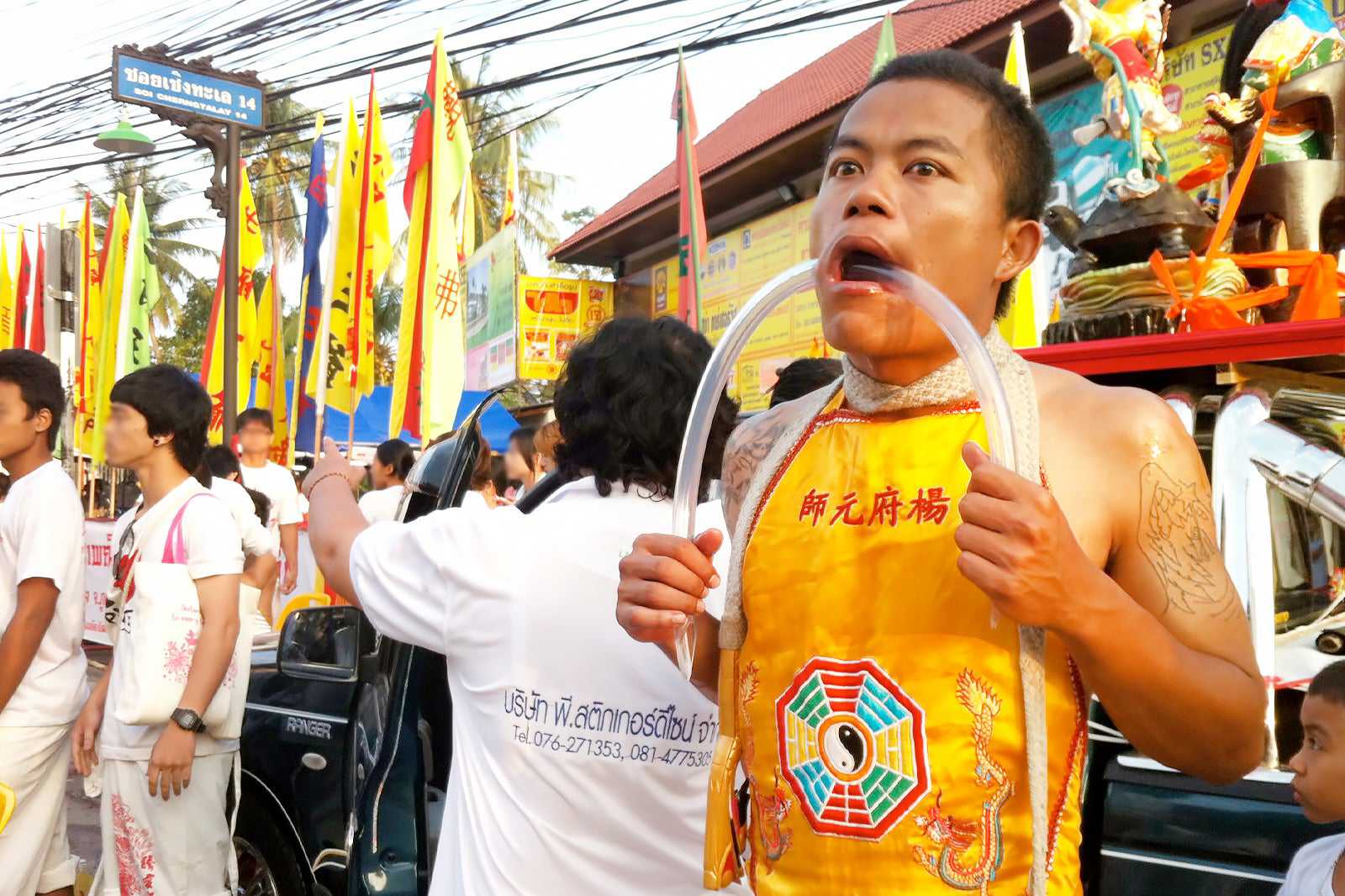
photo by Kirill Kay (CC BY-SA 3.0) modified
What to see at the Phuket Vegetarian Festival
The often gruesome ceremonies during the Phuket Vegetarian Festival are definitely not recommended for the faint-hearted. Men and women puncture their cheeks with sharp items, including knives and skewers. It's believed that the Chinese gods will protect them from harm, resulting in little blood or scarring.
Even so, most injuries are usually sustained from the indiscriminate use of firecrackers. It's a good idea to stay well away from this deafening and sometimes frightening aspect of the Vegetarian Festival.
The ceremonies take place in the vicinity of 6 Chinese temples in Phuket. The main temple is Jui Tui Shrine in Phuket Town. The first event is called the Raising of the Lantern Pole, which notifies the 9 Chinese gods of the start of the festival. Once the 10-metre-tall pole is erected, celebrants believe that the Hindu god, Shiva, descends to bring spiritual power to the event.
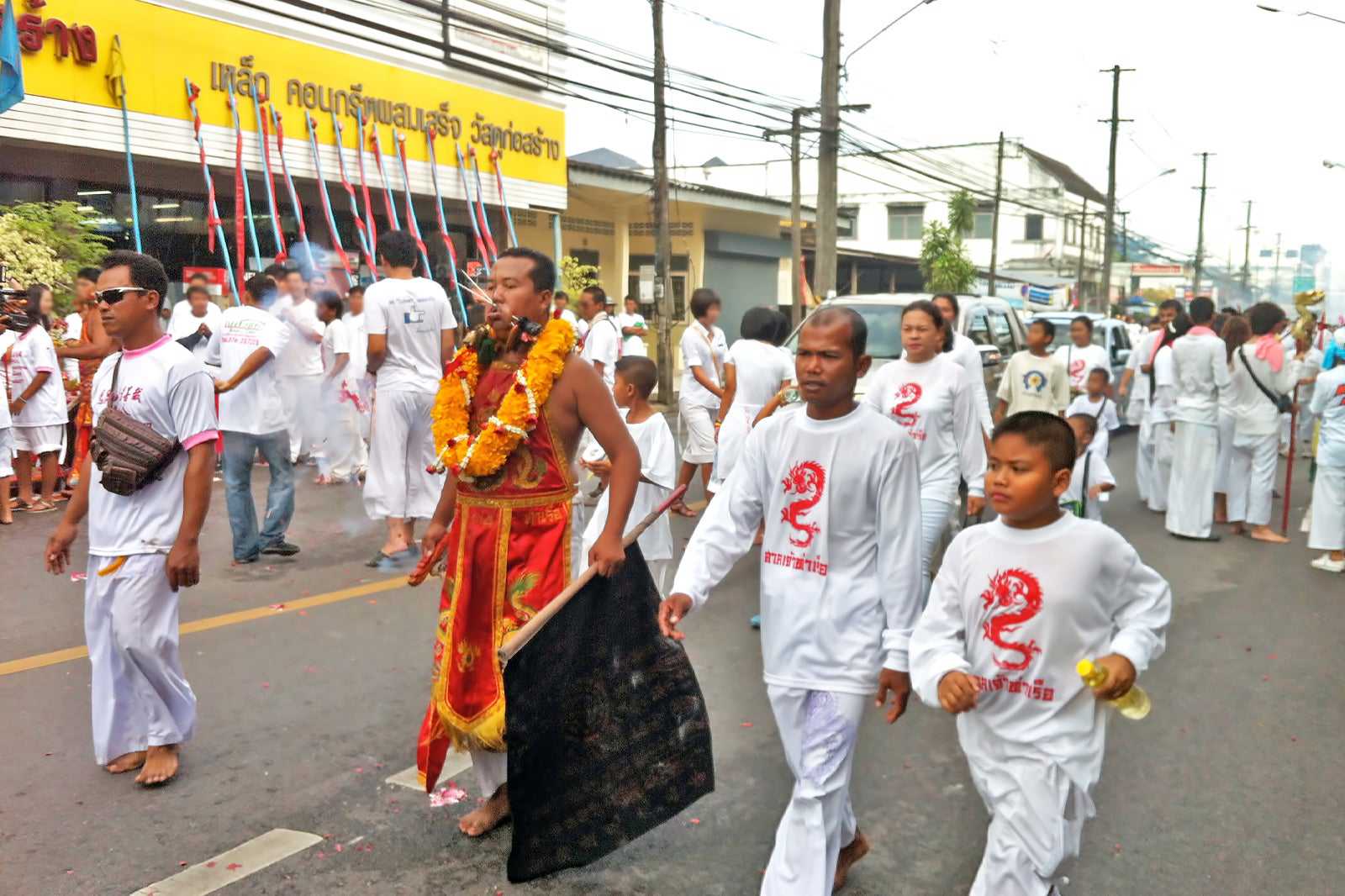
photo by Kirill Kay (CC BY-SA 3.0) modified
For the next few days, the local Chinese/Thai community brings their household gods to the temple, along with offerings of food and drink. It is assumed that the household gods will benefit from an annual injection of spiritual energy that fills the temple. You can observe and even participate in the lighting of joss sticks and candles, before placing them around the various gods.
Street processions often involve participants walking in a trance, running across a bed of burning coals, and climbing an 8-metre ladder of sharp blades. Apart from the visual spectacle of this festival, you can partake in vegetarian dishes, which are sold at street stalls and markets around the island.
Many of these vegetarian dishes aren't easily distinguishable from regular Thai dishes. Soybean and protein substitute products are used to replace pork, chicken or fish – they even look and taste exactly like meat. Look for yellow flags with red Chinese or Thai characters to find vegetarian food stalls.
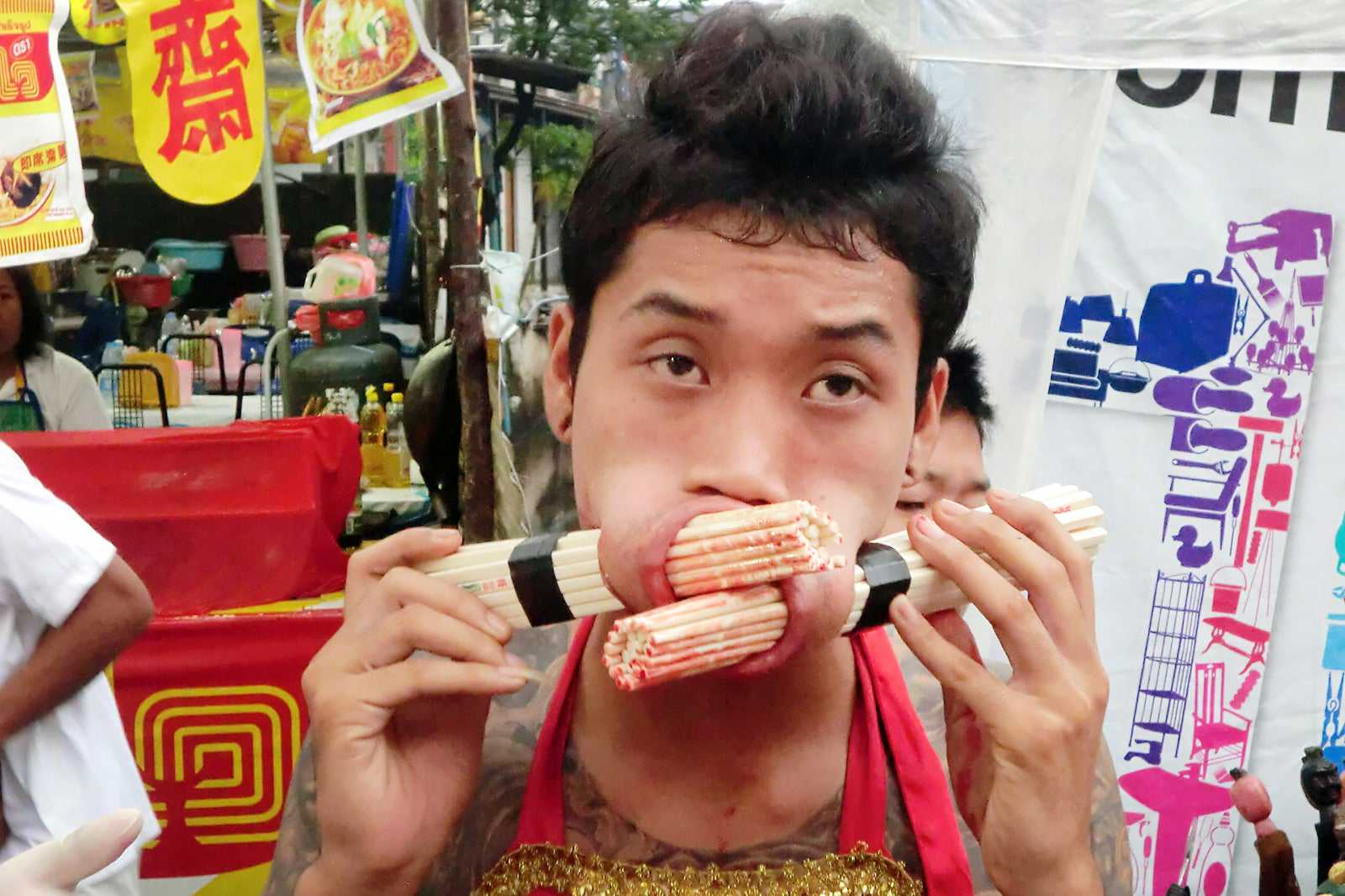
Chinese shrines in Phuket Town
There are more than 40 Chinese shrines around the island. Many of them are just small buildings but all participate in the Phuket Vegetarian Festival. If you want to experience the most of this event, make your way to the island's major shrines. 5 of the oldest shrines in Phuket are Put Jaw, Jui Tui, Bang Niew, Cherng Talay, and Kathu Shrine.
- Baan Tha Rua Shrine, Thepkrasattri Road, not far from the Heroines’ Monument
- Cherng Thalay Shrine, Sri Soonthorn Road, Thalang District
- Sapam Shrine, Thepkrasattri Road, Koh Kaeo, Phuket Town
- Yok Ke Keng Shrine, Soi Panieng, Samkong, Phuket Town
- Samkong Shrine, Yaowarat Road, on the north side of Phuket Town
- Kathu Shrine, Wichitsongkram Road, Kathu District
- Put Jaw Shrine, On the corner of Soi Phuthorn, Ranong Road, Phuket Town
- Jui Tui Shrine, Soi Phutorn, Ranong Road Soi 4, Phuket Town
- Sui Boon Tong Shrine (also known as Lorong Shrine), Pattana Road, Phuket Town
- Bang Neow Shrine, Phuket Road, on the south side of Phuket Town
- Thep Rasi Shrine, Phuket Road, near Robinson Department Store, Phuket town
- Kiew Tien Keng Shrine, Saphan Hin Park, Phuket Town
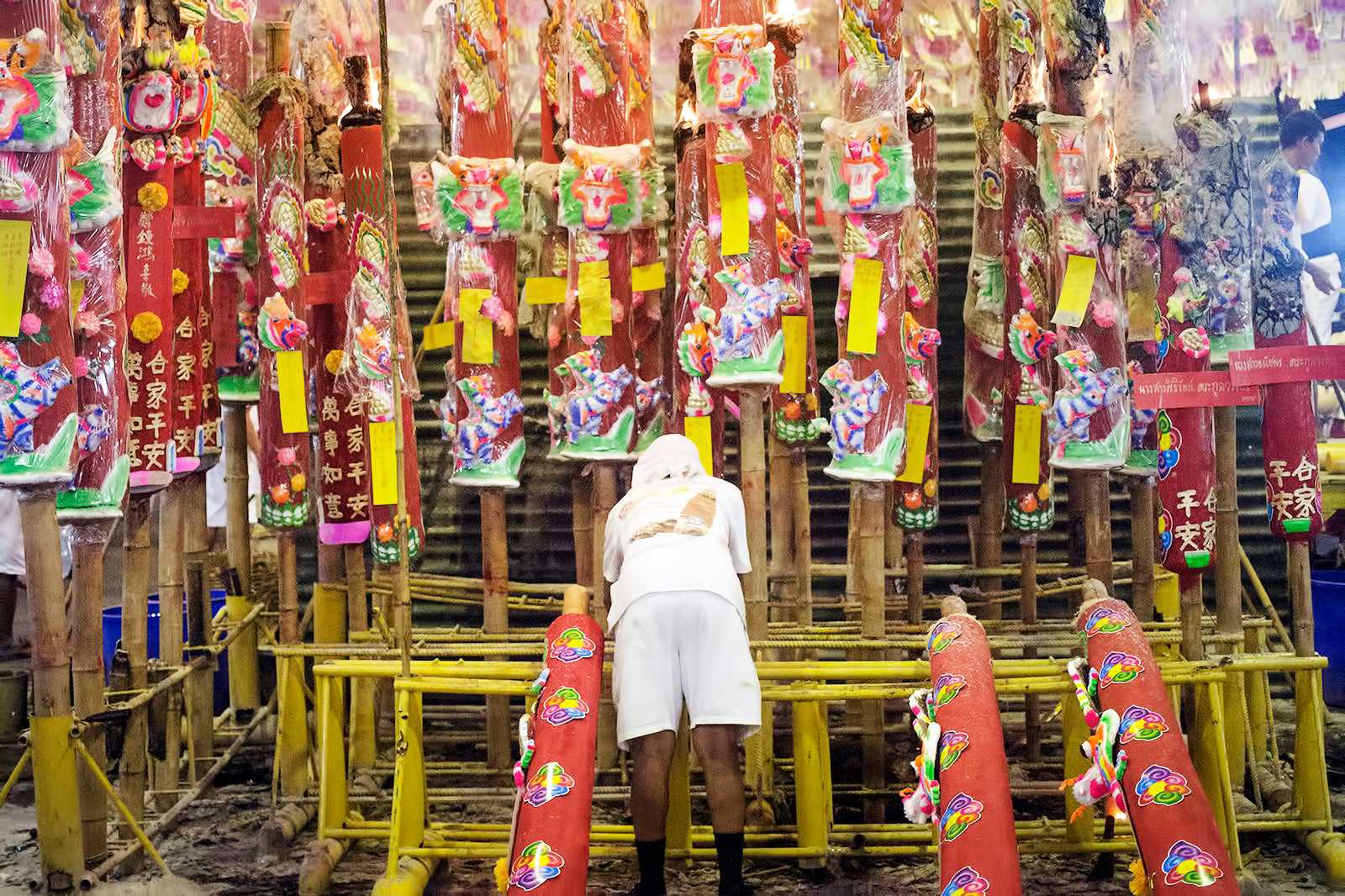
Commitments of the Phuket Vegetarian Festival
The festival always starts on the first day of the 9th Chinese lunar month (though the pole-raising ceremony is the night before). For 9 days, participants observe the following commitments:
- Cleanliness of the body during the festival
- Clean kitchen utensils not to be used by others who do not participate in the festival
- Wear white during the festival
- Behave correctly, both physically and mentally
- Avoid eating meat
- Avoid sex
- Avoid alcohol
- People in mourning should not participate
- Pregnant women and menstruating women should not attend ceremonies
